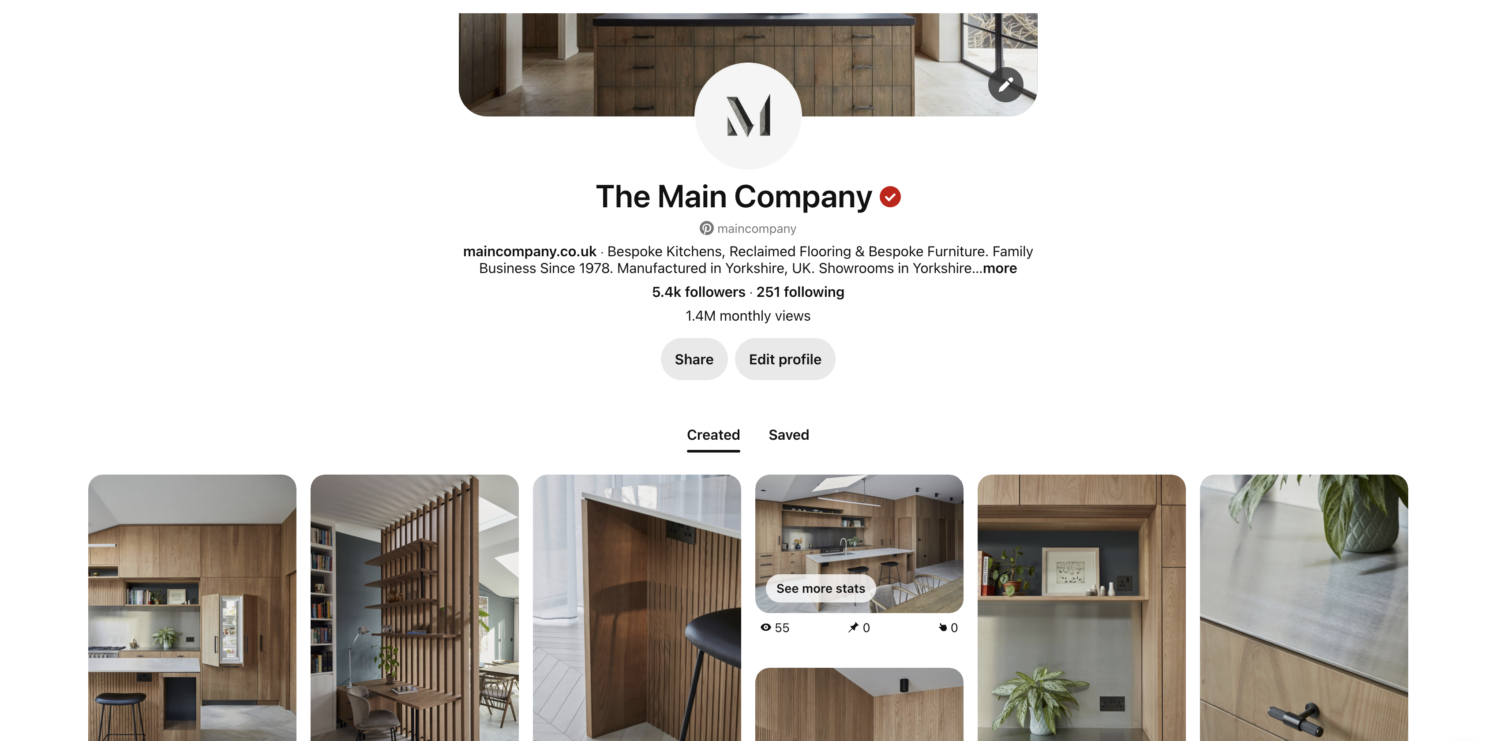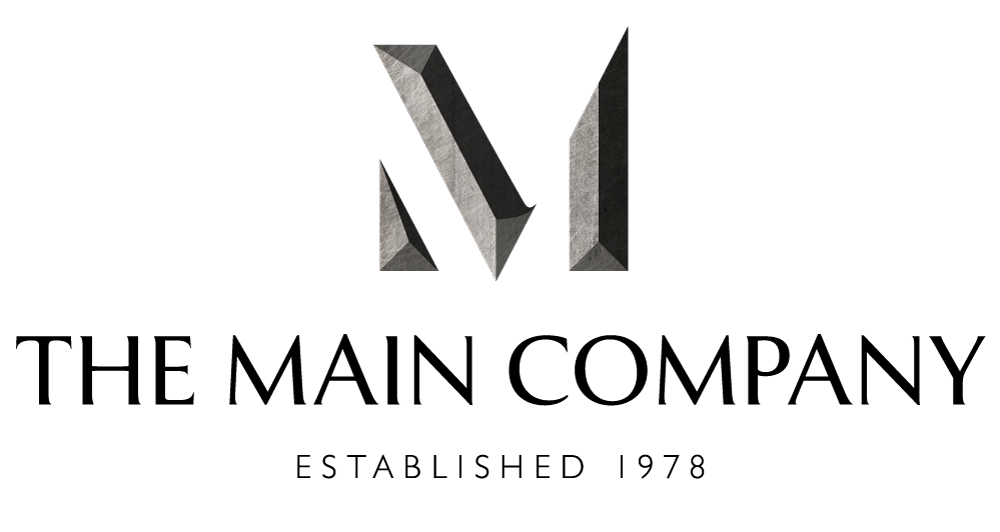Take a deep dive into how we design dream kitchens for our clients! Split into two parts this Journal post explores all the steps involved in a kitchen design project at The Main Company.
Initial checklist
Most people will already have a working kitchen, possibly with areas which work well and others which do not. Here is an example of all the questions we first ask:
- Is the new kitchen staying in the same room? If it is, does the floor go all the way underneath the existing units? Consider whether the floor will need to come up to accommodate new services.
- Will you keep the existing floor, or do you want to change it? First, get the substrate checked for soundness and levels, If you are considering laying tiles this will be very important.
- If the floor does not go under all the existing units, and you do not want to replace the floor, the blueprint of the kitchen must remain the same. Subtle changes in the layout can make it seem like a totally different room.
Make a list
Next, a good exercise is to think through what works well in the existing kitchen and what you would like to redesign. For example:
- Sink: is it big enough, do you like the existing material it is made from, is the draining area big enough and on the right side?
- Tap: would you like to have a 3 in 1 boiling tap? Quooker is the best as it heats to 100% rather than its competitors which top at 98%
- Drawers: do you have too many, not enough, are they big enough to fit the items you want to store, have you got enough internal drawer organisers?
- Base cupboards – too many, not enough, is the access ok and with enough shelves, would you prefer adjustable rather than fixed shelves?
- Wall cupboards – too many, not enough, enough shelves, consider glass doors in a fluted or opaque finish to bring a feeling of airiness but without showing the contents.
- Would open shelves be a nice addition in the new kitchen?
- Appliances – are you reusing any of the existing appliances, happy with the make and position of them, for example does the open door on the dishwasher cause any trip issues, is the fridge big enough, would you prefer integrated, housed or free standing? (Integrated looks like another cupboard with a door matching the rest of the kitchen, housed creates a space for the appliance to go into but surrounds it on both sides and the top and free standing is literally that, placed on its own.)
- An island, do you have one or would you love one? Do you have an island but want to replace it with a table or vica versa?
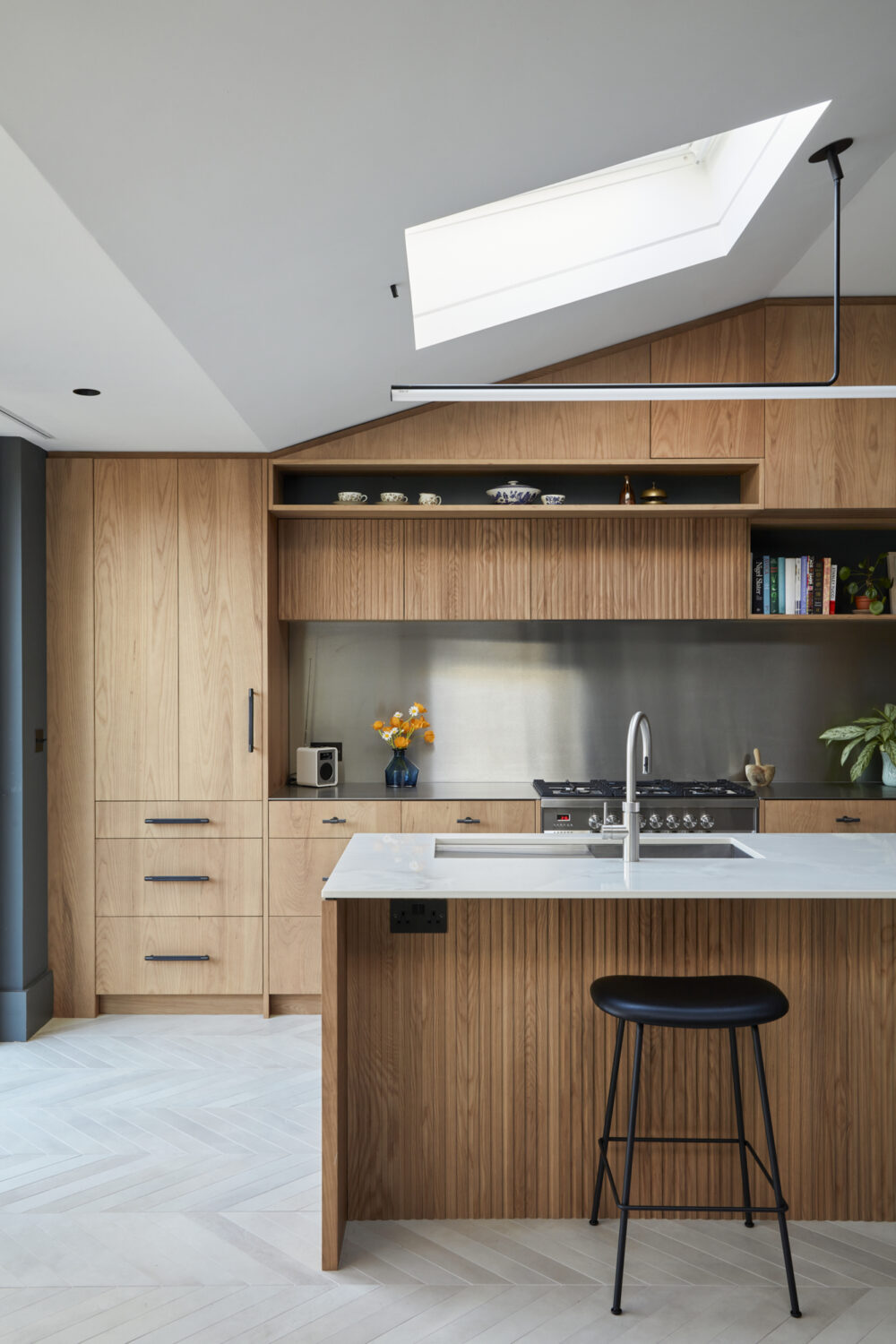
Design elements
Finishes
When considering a new kitchen there are many choices to be made, after assessing the current one. One of the main ones is the finish, wood, painted, metal or a combination of some or all or something else completely. Sometimes it is enough to bring in small accents of wood or metal creating a unique look, perhaps a wooden breakfast bar complemented by the same wood as shelves. Panels under a breakfast bar can be a focal point in a lovely, aged metal and double up as hidden storage areas.
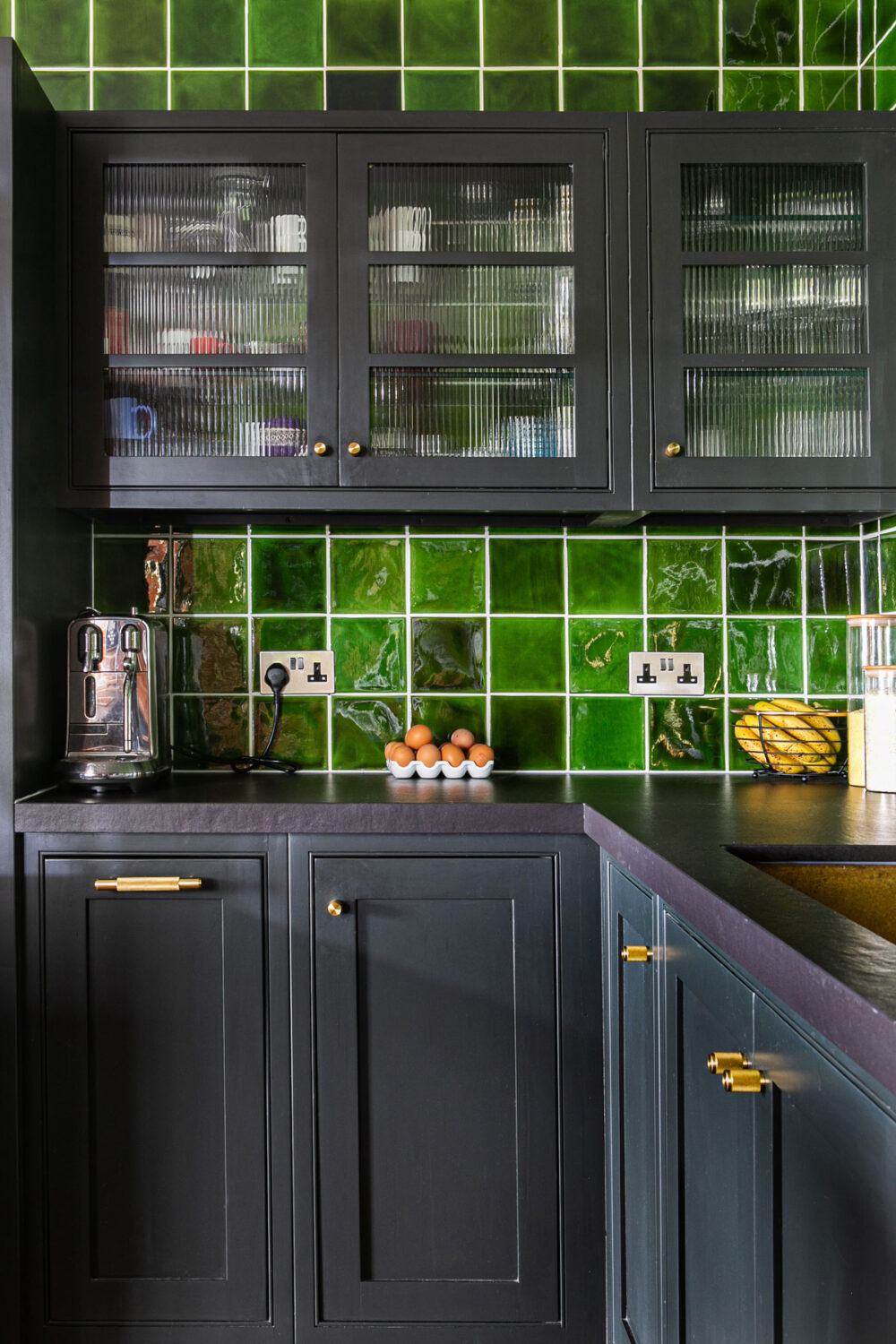
Colour
Using two paint colours in the same room on the units also adds interest, particularly if one of the colours is a strong one, balanced by something more neutral.
Style
Style is such a major consideration, there is so much to choose from, starting with slab doors with a completely flush finish to more intricate panelled doors with beaded panels. It is best to be sympathetic to the age of the property but that said, very contemporary looks can look stunning in an old setting.
Layout
Layout is crucial to a successful design and there should be no short cuts to the time spent working this out. If there is the luxury of an additional room such as a larder or utility room then extra storage can migrate to those rooms, things not in use every day such as extra Tupperware, Christmas dinner service, stock pans etc. If there is not an extra room, then try to create a large storage area with a larder cupboard within the kitchen.
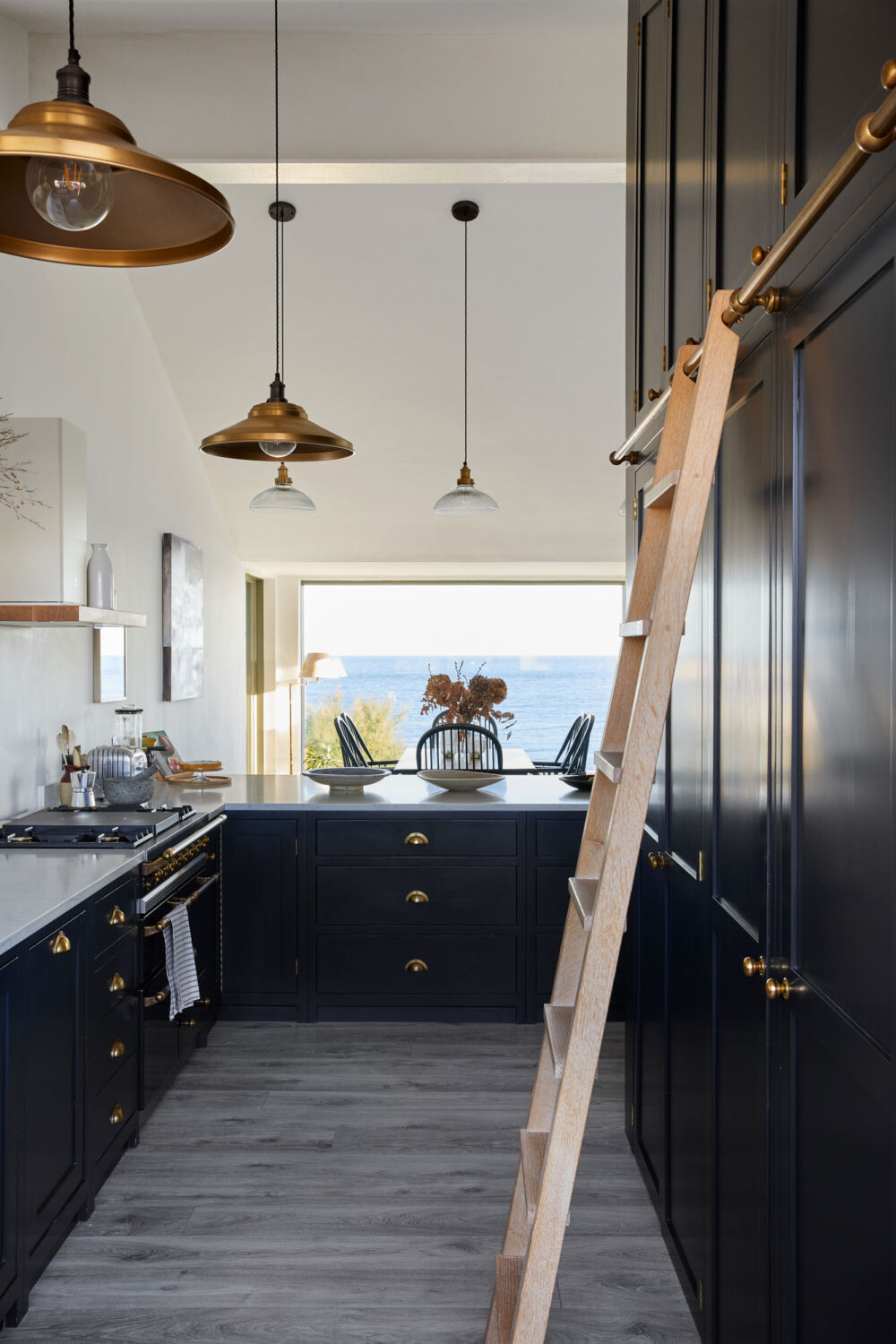
Other considerations
Larder cupboards can be personally designed as are all the kitchen designs at The Main Company. Some clients want to effectively have another workspace when they open the doors to their larder cupboard with smaller kitchen appliances such as a microwave, food processor, coffee machine and juicer. In these circumstances a hard-wearing worktop inside the cupboard is preferable, usually the same as the worktop in the kitchen itself, the main thing is not to forget to install enough plug sockets and a water supply for a plumbed coffee machine if required. Finally, illumination inside the larder cupboard is very useful, sensors on the doors mean the lights come on when you open the door, very handy.
Armed with a few thoughts and possibilities, it is time to meet up with a kitchen designer to use as a soundboard to discuss your kitchen. At this point you may have architect’s plans already drawn up or you may just have room measurements you took yourself, both approaches are fine for the initial consultation. A kitchen consultation is a great way to tease out your ideas and to bring your dream kitchen to the table.
Research
A useful tool is to use Pinterest which enables you to save your ideas and share them with your kitchen designer. It can be fascinating to see how your pictorial choices have a similar thread, reinforcing the design ideas you may have consciously or even sub consciously chosen. Many of our clients find us on pinterest, it is great a resource for finding inspiration and ideas for kitchen design.
